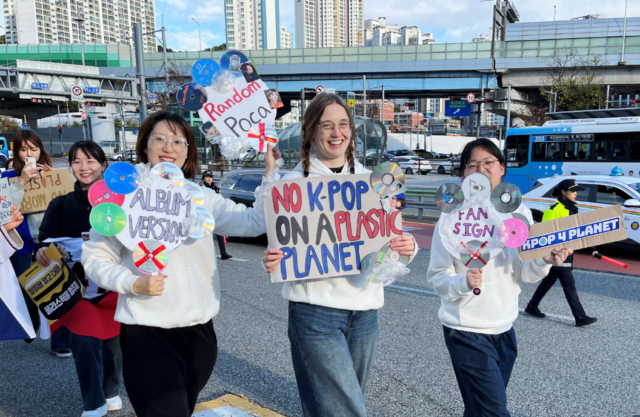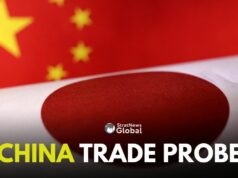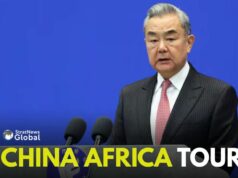
As delegates gathered in South Korea for talks to secure an international treaty to curb plastic pollution, lingering divisions cast doubts on whether a final agreement is in sight.
South Korea is hosting the fifth and ostensibly final UN Intergovernmental Negotiating Committee (INC-5) meeting this week.
Delegates from 175 countries have assembled in Busan for the talks.
The previous round of talks in Ottawa in April ended without a path forward on capping plastic production.
Instead, the meeting issued a direction for technical groups to focus on chemicals of concern and other measures.
It did so after petrochemical-producing countries such as Saudi Arabia and China strongly opposed efforts to target plastic production.
The United States raised eyebrows in August when it said it would back plastic production caps in the treaty, putting it in alignment with the EU, Kenya, Peru and other countries in the High Ambition Coalition.
The election of Donald Trump as president, however, has raised questions about that position.
During his first presidency, he shunned multilateral agreements and any commitments to slow or stop U.S. oil and petrochemical production.
The U.S. delegation did not answer questions on whether it would reverse its new position to support plastic production caps.
But it “supports ensuring that the global instrument addresses plastic products, chemicals used in plastic products, and the supply of primary plastic polymers,” according to a spokesperson for the White House Council on Environmental Quality.
Inger Andersen, Executive Director of the U.N. Environment Programme, said she was confident the talks will end with an agreement.
Andersen pointed to the communique from the Group of 20 nations at a summit last week calling for a legally binding treaty by the end of this year.
“This is a very powerful message,” Andersen told Reuters in Baku, on the sidelines of the UN climate negotiations, before travelling to Busan for the talks.
For a Pacific island country like Fiji, a global plastics treaty is crucial to protect its fragile ecosystem and public health, said Sivendra Michael, Fiji’s Climate Minister and Chief Climate and Plastics negotiator.
He told Reuters on the sidelines of the 29th UN Climate Change Conference (COP29) this month that despite not producing any plastic, Fiji is bearing the brunt of its downstream pollution.
“Where do these plastics end up? It ends up in our oceans, in our landfill, in our backyards. And the impact of the plastics breaking down into little substances has detrimental effects, not only on the environment, but on us as individuals, on our health,” Sivendra said.
He said that studies showed that most of the fish consumed in the country was polluted with microplastics.
While supporting an international treaty, the petrochemical industry has been vocal in urging governments to avoid setting mandatory plastic production caps.
The petrochemical industry wants governments to focus on solutions on reducing plastic waste, like recycling.
“We would see a treaty successful if it would really put … emphasis on ending plastic pollution. Nothing else should be the focus.” said Martin Jung, President for performance materials at chemical producer BASF.
Previous talks have also discussed searching for forms of funding to help developing countries implement the treaty.
At COP29, France, Kenya and Barbados floated setting up a series of global levies on certain sectors that could help ramp up the amount of money.
This money could be made available to developing countries seeking support to aid their clean energy transition and cope with the increasingly severe impacts of climate change.
The proposal included a fee of $60-$70/ton on primary polymer production, seen potentially raising an estimated $25-$35 billion per year.
Industry groups have rejected the idea, saying it will raise consumer prices.
(With inputs from Reuters)
Delhi based journalist pickled in journalism. Have reported from nine world capitals and almost all parts of India. Over the last three decades, I have worked for India’s mainstream English dailies and contributed to All India Radio, Doordarshan and Women’s Feature Service. Also worked for international media including Japan’s leading newspaper, The Asahi Shimbun and done assignments for The Sunday Times, London, The Telegraph, The Guardian and the Canadian Broadcasting Corporation. Worked in the Embassy of France in New Delhi and can speak French to save my life. Write on Diplomacy, Politics and the social sector. Love Nature, heritage, Nature, animals and vintage cars. Enjoy cycling and playing badminton.




